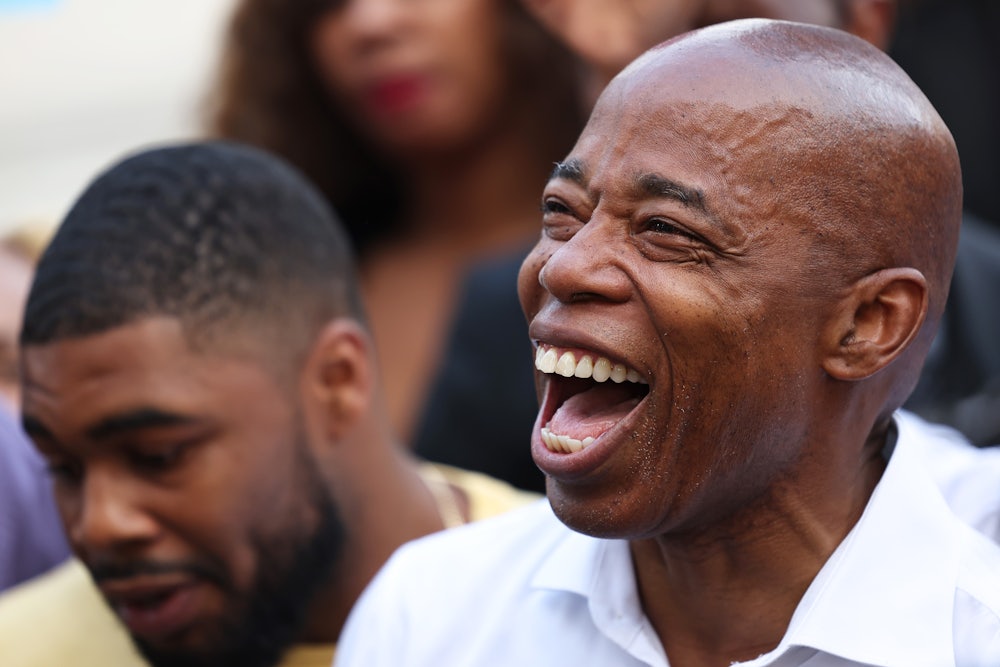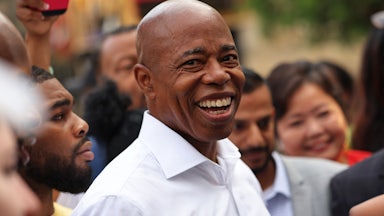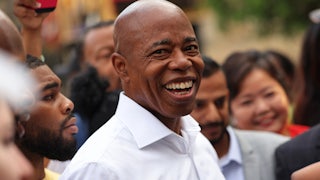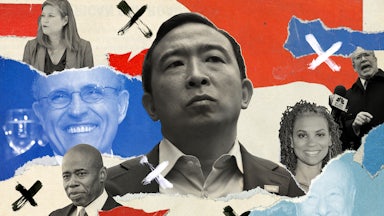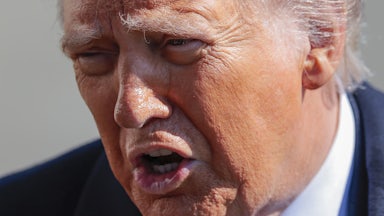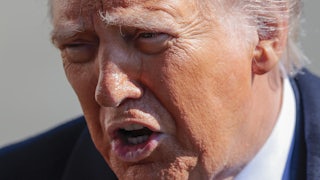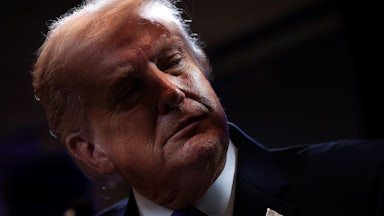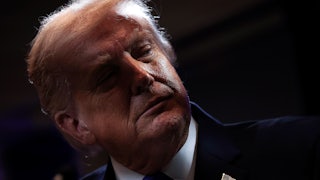When New York City’s mayoral election plunged into chaos earlier this week, Donald Trump declared victory. “It was announced overnight in New York City that vast irregularities and mistakes were made and that Eric Adams, despite an almost insurmountable lead, may not win the race,” Trump said, in a statement referencing the Democratic front-runner, a former police officer who is currently Brooklyn borough president. “The fact is, based on what has happened, nobody will ever know who really won.”
It was easy to see why Trump and other Republicans were quick to seize on the discrepancies. The New York Board of Elections instituted a new ranked-choice voting system just ahead of 2021’s primary election. Shortly after it released the latest wave of voting data, people noticed startling discrepancies. The Adams campaign was quick to cry foul; hours later, the Board of Elections admitted that it had mistakenly included nearly 150,000 “test ballots” in its latest count. Official results, showing Adams and former New York City Sanitation Commissioner Kathryn Garcia in a tight race, were finally released on Thursday. But by then the damage was done. This mishap, Republican National Committee Chair Ronna Romney McDaniel said, was “what happens when Democrats run elections,” despite the fact that the Board of Elections is bipartisan.
The whole debacle was a gift to Republicans like Trump who have spent the last eight months bloviating about how the 2020 presidential election was stolen. In Democrat-run New York, the argument goes, they messed up 140,000-odd ballots—so who’s to say there wasn’t similar fraud and corruption in 2020 across a host of other states, some of which were decided by much slimmer margins? New York’s snafu is destined to be endlessly cited by Republicans as a defense of thoroughly bogus “questions” about the legitimacy of the 2020 elections. That the cock-up was eminently preventable—any competently run Board of Elections would not have made so foolish a mistake—only makes it more absurd. That nothing is likely to change as a result of this catastrophic fuckup makes it outrageous.
This is hardly the Board of Elections’s first blunder. In New York City, the Board of Elections is notoriously and famously corrupt, a Tammany Hall relic staffed by the friends and family of the city’s politicians and powerful. Per The New York Times last fall:
The official who oversees voter registration in New York City is the 80-year-old mother of a former congressman. The director of Election Day operations is a close friend of Manhattan’s Republican chairwoman. The head of ballot management is the son of a former Brooklyn Democratic district leader. And the administrative manager is the wife of a City Council member.
Many of the staffers, the article goes on to note, barely show up for work at all; some clock in and then go shopping. Others spend their time reading or watching Netflix.
The same article noted a string of scandals going back to 1940, when the Board was decried as being defined by “illegality, inefficiency, laxity and waste.” In 1971, The New York Times referred to it as “at best a semi‐functioning anachronism,” a description that still applies today. More recently, the Board has been in the news for a whole melange of bungles: Ballots in 2012 were printed in microscopic size-seven font; more than 200,000 Brooklyn voters were purged illegally in 2014 and 2015. The last year has been particularly embarrassing. In 2020, one hundred thousand Brooklyn voters received absentee ballots with someone else’s name on them, while extremely long lines plagued early voters, with some waiting hours to cast a ballot.
This screw-up has been blamed in some corners by the introduction of ranked-choice voting. It’s easy to see why: Ranked-choice voting is new and complicated; votes were cast more than a week ago, but results were delayed to account for absentee ballots. But ranked choice remains a better alternative to the current first-past-the-post system, and it has the potential to lessen the toxicity and partisanship of American politics. According to a recent study from FairVote.org, it also brings a welcome dose of diversity to our politics, as “winning candidates of color, particularly those who are Black or Hispanic/Latino, grew their vote totals between the first and final ballot rounds at a higher rate than winning White candidates” in ranked-choice systems. Even after the debacle in New York City’s vote, ranked-choice voting has a lot going for it.
It’s not this new innovation that’s spoiled the election, it’s an ancient foe of good government: decrepit patronage networks and their attendant corruption. These maladies still afflict New York’s politics. The Board of Elections is a favorite punching bag for politicians, but little has been done to bring it into the twentieth century, let alone the twenty-first century. Minor efforts to reform the board, like the one proposed by the city’s current mayor, Bill de Blasio, two years ago, are vehemently opposed by officials currently sitting on the board; they can, it seems, wait out any effort for change. This week’s mishap is just the latest example of how backward the city’s Board of Elections is; unfortunately, it likely won’t be the last.
